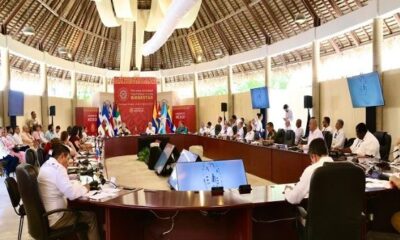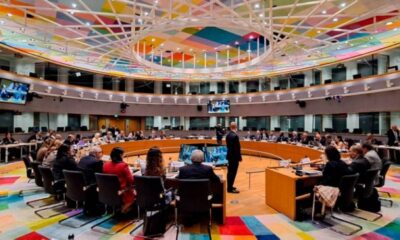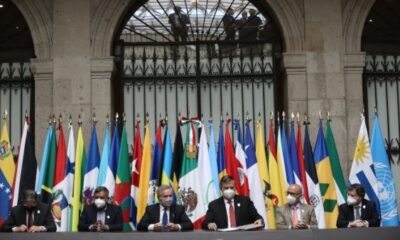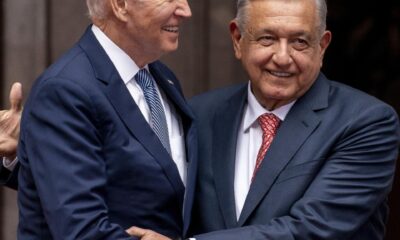International
Latin American leaders hold summit with Brazil back in the fold
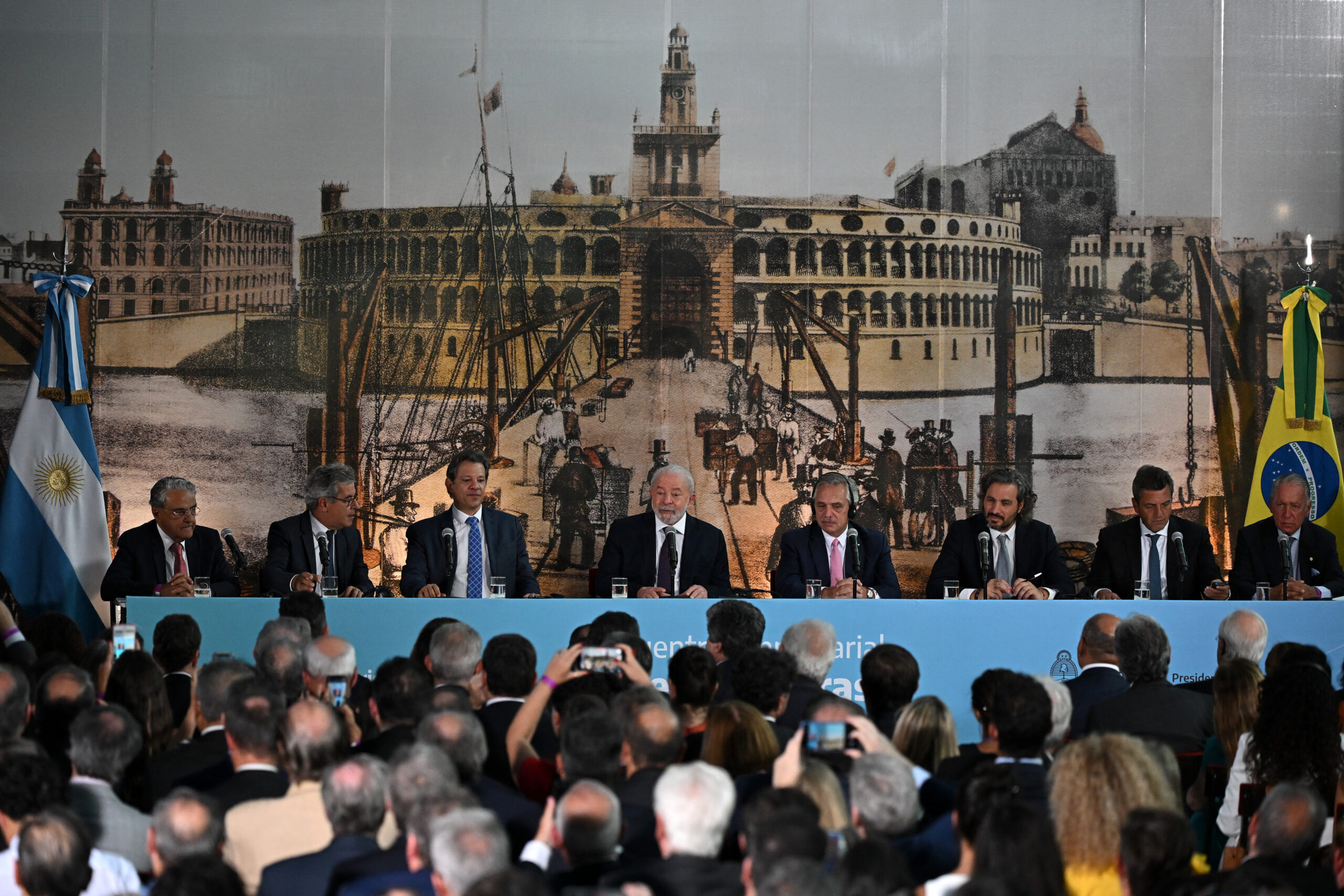
January 24 | By AFP | Philippe Bernes-Lasserre / Mauricio Rabuffetti |
Fifteen Latin American heads of state and government meet Tuesday in Buenos Aires for a regional summit welcoming back Brazil as President Luiz Inacio Lula da Silva looks to rebuild bridges after his far-right predecessor Jair Bolsonaro pulled out of the grouping.
The 77-year-old Lula, in Argentina for the first international trip of his third term, will participate in the seventh Community of Latin American and Caribbean States (CELAC) summit, bringing together 33 states from the region.
Lula was one of the founders of CELAC, during the first “pink wave” on the continent in the first decade of the century.
And now he brings Brazil back into the fold after Bolsonaro had suspended the country’s participation in the grouping.
Host Argentina this week hailed a “new climate in Latin America”, with the region ushering in a new wave of left or center-left governments since 2018, including Mexico, Argentina, Honduras, Chile, Colombia and Brazil.
A forum for consultation and cooperation, CELAC is not a regional integration mechanism with binding opinions.
And for all the importance underlined on Monday by Argentine President Alberto Fernandez and Lula of “the need to integrate Latin America,” CELAC is struggling to unite members over successive regional crises, like Peru.
“Latin America is bankrupt from the institutional point of view (…) it has not succeeded in integrating collectively into the world,” Ignacio Bartesaghi, an expert in international relations at the Catholic University of Uruguay, told AFP.
At the very least, CELAC “remains a vast and diverse space of Latin American countries from which minimal agendas or common interests for the region can be established”, agreed Bernabe Malacalza, researcher in international relations at the Argentine national research center CONICET.
“There is not even certain basic consensus in Latin America, as on the difference between a democracy and a dictatorship,” Bartesaghi stressed.
“There are (at CELAC) presidents who do not even recognize each other,” he noted.
Like Paraguay’s Mario Abdo Benitez, whose country broke diplomatic relations with Nicolas Maduro’s Venezuela in 2019.
Lula meanwhile has pledged to reopen the embassies.
‘Rebuild Mercosur!’
Maduro at last minute called off his trip, citing “a risk of aggression” from “the neo-fascist right,” a possible reference to some Argentine opposition politicians calling for him to be arrested on arrival.
Other significant absentees in Buenos Aires include Mexico’s leftwing President Andres Manuel Lopez Obrador, leader of the second largest economy in Latin America and host in 2021 of the last CELAC summit.
CELAC however remains the interlocutor of choice for China, or the EU to negotiate cooperation agendas with the region.
But even here, “The impossibility of holding an EU-CELAC summit since the last one in 2015 (in Brussels) illustrates (…), the absence of a solid biregional political dialogue,” Malacalza said.
In this sense, the return of Lula could give a boost to certain sub-regional issues, such as the free-trade agreement between the EU and the Mercosur group which comprises Brazil, Argentina, Uruguay and Paraguay.
The deal was finalized in 2019 but never ratified, due in particular to concerns about Bolsonaro’s environmental policy.
Lula has indicated a willingness to resume contacts.
“We are going to rebuild Mercosur!” Lula said Monday evening, referring to the customs union which has been torn in recent months over a free trade treaty with China.
“We will recreate Unasur!” he continued, referring to the moribund Union of South American Nations created in 2008 on the initiative of himself and Venezuela’s Hugo Chavez.
Latin America is only the initial phase of the Brazilian president’s international push, with Lula heading to Washington in February and to China “after March.”
International
Trump will receive Netanyahu at the White House next week
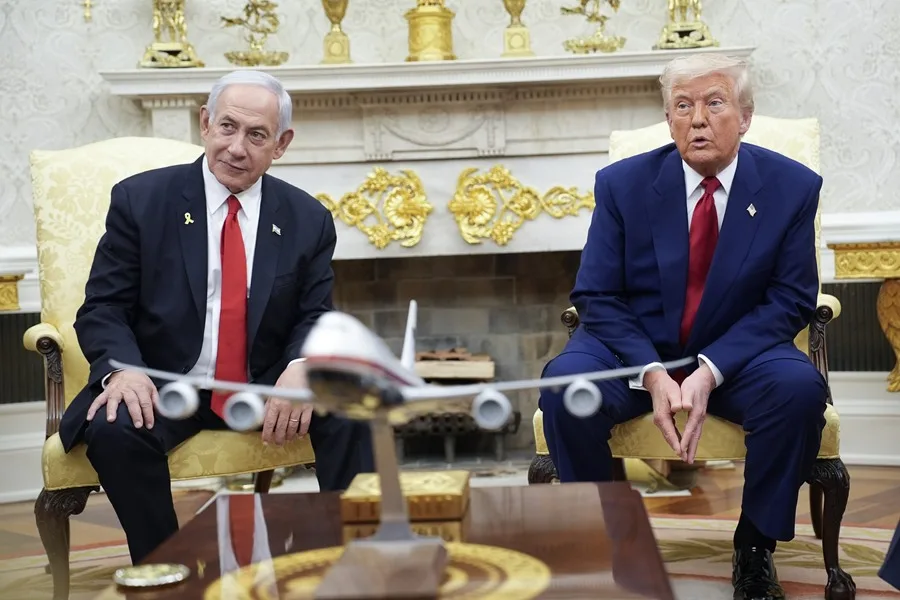
Israeli Prime Minister Benjamin Netanyahu will visit Washington next week, a high-ranking official of Donald Trump’s government told EFE.
The visit, which according to the specialized portal Jewish Insider will take place on Monday, comes amid pressure from Washington to achieve a ceasefire in the Gaza strip.
The US president launched a message on Sunday on his social network Truth calling for an immediate agreement to end the conflict and “release the hostages.”
This message follows another one from last Friday in which he assured that a solution to the conflict in Palestine could be reached as early as this week.
“We are working in Gaza and trying to solve it. We are supplying a lot of money and a lot of food to that area because we have to do it,” the president stressed at an event in Washington.
In addition to publicly insisting on his desire to reach a cease of hostilities in the region, Trump has also supported Netanyahu, a key ally, despite the fact that the Israeli is going through a judicial process where he is charged with bribery, fraud and breach of trust in three different criminal cases.
Israel has maintained its offensive in Gaza, in a resurgence of the conflict that has already lasted for more than a year and that leaves dozens of deaths daily.
The Israeli Army has intensified its attacks in the north of the Strip after ordering last Sunday the forced evacuation of residents in several neighborhoods of the capital of Gaza and the northern city of Yabalia.
Since October 7, 2023, at least 56,259 Palestinians have died and more than 132,000 have been injured by Israeli fire, according to figures from the Ministry of Health of the Hamas Government.
International
The US climate agency will lose access to key data for hurricane forecasting in July

The National Oceanic and Atmospheric Administration (NOAA) announced on Monday that it will lose access to essential satellite data for the hurricane forecast on July 31, when the Department of Defense will stop sharing the images with that US agency.
Initially, NOAA was going to lose access to the data from today Monday, but managed to extend the deadline since NASA, which was also going to be affected by the measure, requested an extension until July 31.
According to a NOAA statement, late on Friday, June 27, the Naval Meteorology and Oceanography Command received a request from Karen St. Germain, director of NASA’s Earth Science Division, “to postpone the withdrawal and continue processing and distributing data from the Defense Meteorological Satellite Program until July 31.”
The original decision to cut off access to satellite data as of today was made with the aim of “mitigating a significant cybersecurity risk,” according to the note.
NOAA’s access to data provided by the Defense Weather Satellite Program was crucial for predicting hurricane formation, since they allowed to mediate variables that were not available to conventional satellites.
In addition, the measure takes place in the middle of hurricane season, which experts expect to be more intense than normal in the Atlantic Ocean.
According to the Colorado State University (CSU), the probability of a major hurricane, category 3 or higher, impacting the United States in the current Atlantic cyclone season amounts to 51%.
This coincides with the approval in the Lower House of Congress of the controversial “great and beautiful bill” of US President Donald Trump, which includes a cut of almost 30% of the annual budget to NOAA and 646 million dollars to the Federal Emergency Management Agency (FEMA).
International
The Argentine justice declares Milei’s measure that limited the right to strike unconstitutional

The Justice of Argentina declared on Monday the unconstitutionality of two articles of the decree signed on May 20 by President Javier Milei that limited the right to strike of workers from various sectors, giving rise to a precautionary measure requested by the General Confederation of Labor (CGT), the main workers’ central of the country.
The decision was made by the National Labor Court No. 3, which ordered to stop the application of articles 2 and 3 of decree 340/2025, considering that they violate constitutional guarantees such as freedom of association and the right to strike, established in the Constitution and in international agreements signed by Argentina.
The decree modified article 24 of Law 25,877, which regulates collective labor conflicts, and declared a long list of activities as essential, limiting the possibility of its workers to carry out union action measures.
Judge Moira Fullana, who intervened in the case, argued that the unconstitutionality is based on the fact that, at the time of the signing of the decree, the National Congress was in full function, so there was no justification of necessity and urgency that deserved to skip the legislative treatment of such modifications.
On June 2, Fullana had provisionally failed to suspend the application of this measure, in response to another precautionary measure, requested by the Association of State Workers (ATE).
Until before its recent challenge, Decree 340/2025 required to guarantee between 50% and 75% of the usual benefits in sectors such as the production of medicines and/or hospital supplies, land and underground transport, radio and television, industrial activities, the food industry, the production and distribution of building materials, all airport services, logistics services, mining activity, refrigeration activity, mail and the distribution and marketing of food and beverages, among others, even during trade union conflicts.
The Government also included in that list of essential services all branches of maritime and river transport, customs, immigration services and education at all levels.
The measure, originally included in an extensive decree of general deregulation of the economy signed by Milei shortly after its assumption in December 2023, had already been unconstitutional by the Argentine Justice at that time.
-

 International3 days ago
International3 days agoProtests erupt over Florida’s ‘Alligator Alcatraz’ migrant jail in the Everglades
-
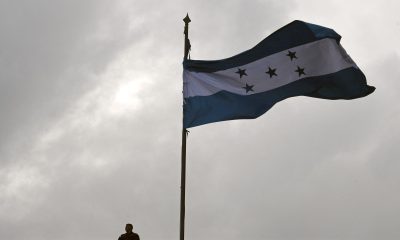
 Central America4 days ago
Central America4 days agoHonduras secures IDB loan to improve access and quality of education in vulnerable areas
-
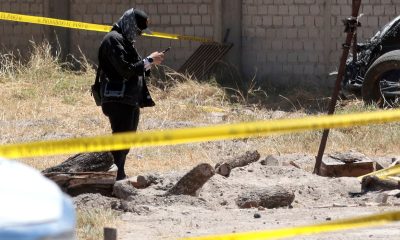
 Internacionales4 days ago
Internacionales4 days agoJalisco’s grim discovery: drug cartel mass grave found in construction site
-

 International4 days ago
International4 days agoU.S. targets families of sanctioned drug traffickers with new Visa restrictions
-
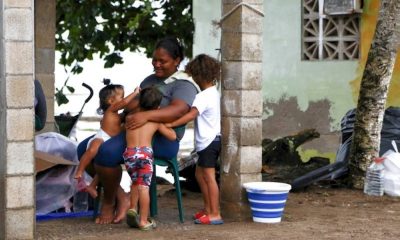
 Central America3 days ago
Central America3 days agoMigrants stranded in Panama amid US Policy crackdown and Darién gap barriers
-

 International2 days ago
International2 days agoTikTok sale advances as Trump reveals deal is in place
-
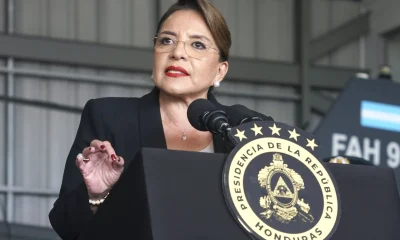
 Central America2 days ago
Central America2 days agoCastro to address FfD4 in Spain as Global Financial Reform takes center stage
-

 International1 day ago
International1 day agoTrump administration sues Los Angeles over sanctuary city policies
-
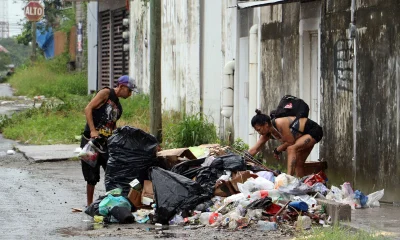
 International1 day ago
International1 day ago7 in 10 mexicans born poor stay poor, new report finds
-

 International1 day ago
International1 day agoSpain hits record 46°C in June amid scorching heatwave
-

 International1 day ago
International1 day agoEcuador’s former VP Jorge Glas sentenced to 13 more years for corruption
-

 International7 hours ago
International7 hours agoThe White House insists that the United States remains in contact with Iran
-

 International7 hours ago
International7 hours agoTrump sues Los Angeles for immigrant “sarture city” policies
-
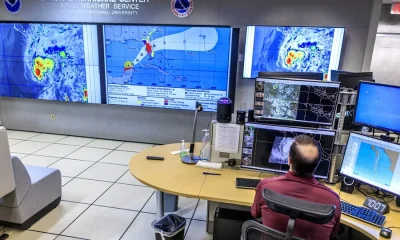
 International7 hours ago
International7 hours agoThe US climate agency will lose access to key data for hurricane forecasting in July
-

 International7 hours ago
International7 hours agoThe Argentine justice declares Milei’s measure that limited the right to strike unconstitutional
-
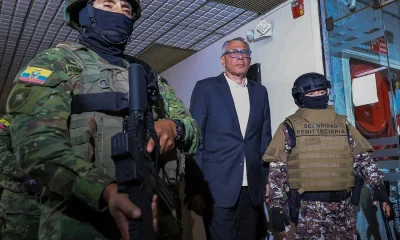
 International7 hours ago
International7 hours agoFormer Correísta vice president Jorge Glas, sentenced to 13 years in prison for embezzlement in Ecuador
-

 International7 hours ago
International7 hours agoAn investigation by the Trump Administration concludes that Harvard violated the rights of Jewish students
-
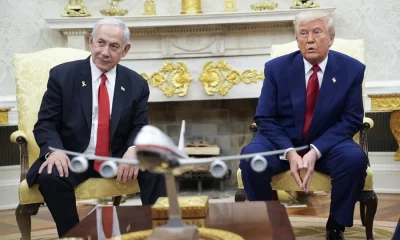
 International7 hours ago
International7 hours agoTrump will receive Netanyahu at the White House next week
-
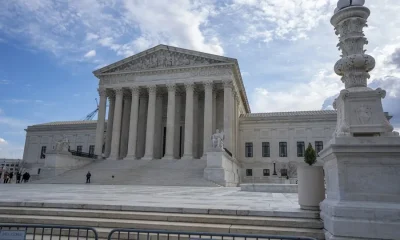
 International7 hours ago
International7 hours agoThe US Supreme Court will address the reduction of spending limits of parties in campaigns











































































